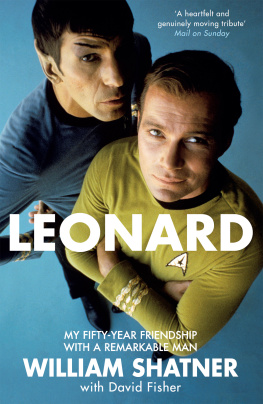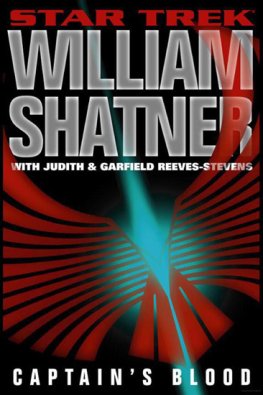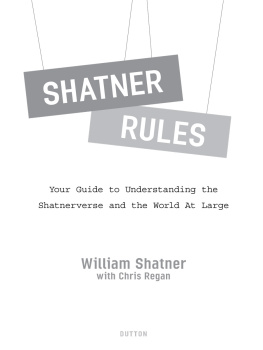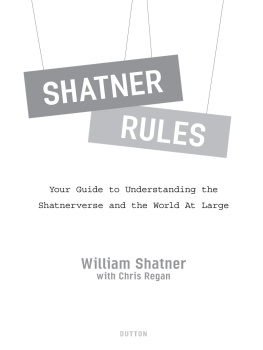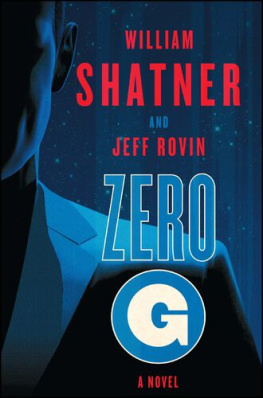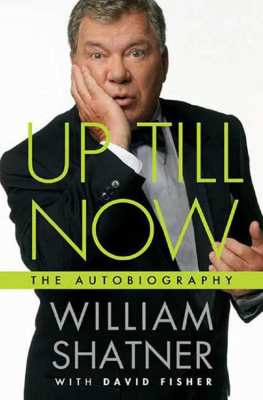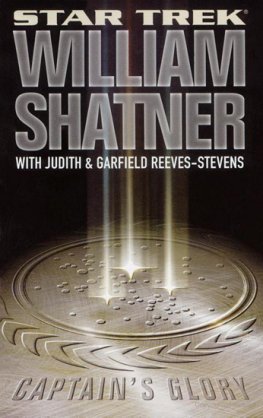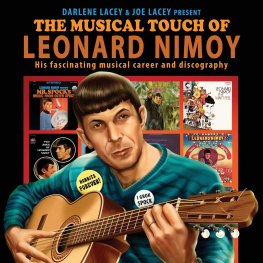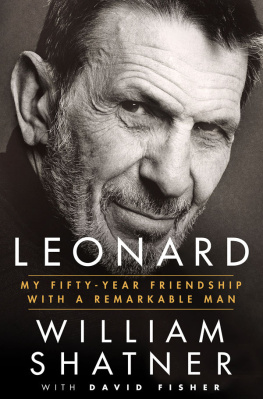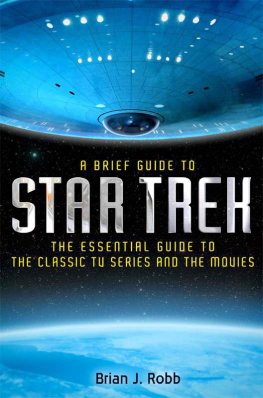I am dedicating this book to a human being who lived his life for over eighty-three years, whose journey was filled with joy and anger, cynicism and idealism, the endless array of emotions that constantly change and evolve. We humans go through life barnacled with the detritus of lifeits a drag, causing change, what once was passion changes to indifferencejoy becomes sorrow and love has many hues. All the interweaving elements of human existence. Thus, I am that, you are that, and he was that. I dedicate this book to my dear friend Leonard Nimoy and his loving family.
CONTENTS
ONE
Death ends a life, but it does not end a relationship.
PLAYWRIGHT ROBERT ANDERSON
A t the conclusion of the second Star Trek movie, The Wrath of Khan, the Enterprise is facing destruction. The starship had less than four minutes to escape the activation of the Genesis Device, which will reorganize all matter. But it cant get away fast enough because the warp drive has been damaged. It can be repairedbut its a suicide mission. Enough radiation has leaked into the reactor room to kill anyone going in there to make those repairs. As Dr. McCoy tells Spock, No human can tolerate the radiation thats in there.
To which Spock responds, ever logically, But as you are so fond of observing, Doctor, I am not human. After incapacitating McCoy with a Vulcan nerve pinch, Spock goes into the reactor room and saves the ship and its crew. But the cost is his own life.
When Kirk realizes what has happened, he runs down to the engine room. Spock is still barely alive. The two men, who have fought together throughout the universe, are separated by a clear plate glass wall. In his last moments, Spock tells Kirk, Dont grieve, Admiral... it is logical. The needs of the many... outweigh...
the needs of the few, Kirk finishes.
Or the one, Spock adds, then places the palm of his hand, open with Vulcan salute, on the glass. On the other side, Kirk lays his hand on the wall, their hands seemingly touching. A final good-bye. With his dying breath, Spock tells Kirk, I have been... and always shall be... your friend. Live long... and prosper.
At the conclusion of the 2001 documentary Mind Meld: Secrets Behind the Voyage of a Lifetime, which is simply a long conversation between Leonard Nimoy and me about our lifelong journey to places no man had gone before, we are together in his den. Earlier in this film, we were looking at a framed photograph of us in our Star Trek costumes on the cover of TV Guide. This is us, hed mused. Siamese twins.
I agreed, Yes, you and I. Joined at the hip. A few seconds later, I added, You and I have spent more than half our lives together. I think of you as one of my dearest friends, my dearest. And I truly love, I love you.
Leonard wasnt a man given to public displays of emotion. Much like the character Spock, he was very reserved. The same, was the best response he could muster at that moment. But at the very end of the documentary, as we stood next to each other looking into the camera, he suddenly and quite unexpectedly threw his arm around my shoulders and blurted, Youre my best friend.
In life, as well as through the characters we created on Star Trek, Mr. Spock and Captain James T. Kirk, Leonard Nimoy was my best friend. And like the millions of people who loved him, I will miss him forever.
Leonard and I were born four days apart. While I was born first, and was therefore the wiser, more mature, and more experienced one, he simply enjoyed pointing out, Youre a lot older than I am. Although neither one of us remembered it, we met briefly for the first time in 1964 when we both appeared in an episode of The Man from U.N.C.L.E. I played a supposedly drunken bon vivant; he was the Russian bad guy. In our first scene together, I slung my arm over Leonards shoulder, raised my martini glass, and muttered, Calvin Coolidge! How are you, Cal baby? Want a taste of this? But our friendship, our friendship that was to last fifty years, actually began in July 1965, when we filmed our first Star Trek episode together.
Obviously, neither one of us could have imagined that eventually we would become best friends. Nor did we have the slightest hint that we were creating two of the most iconic characters in American cultural history. We were two working actors showing up to do the job. Honestly, until Leonard and I developed our relationshipwith the exception of my wivesI never had a real friend; I didnt even know what a friend was. I had never had anyone in my life to whom I could completely emotionally unburden myself. There certainly have been some wonderful people I have been close to, people I know I could rely on, but as far as speaking openly and revealing that which is most troublesome and most secretive, secure in the knowledge it will remain as buried in their breasts as it is in mine, there was only Leonard. We worked together for three seasons. During production, actors will spend more time with each other than with their families. When actors work together for a lengthy period of time, comfortable friendships often develop. Weve worked together under great stress and forged a common bond. Weve faced ridicule and shared feelings of inadequacy. Weve pushed each other past exhaustion to try to do better work. Weve fought the front office and the business staff, and weve made something good. Through it all, many of us come to love and depend on each other.
Before doing Star Trek, for example, I did a series called For the People with Howard Da Silva, Lonny Chapman, and Jessica Walter. It was a wonderful show, and they were all my best friends. When it ended, we hugged and told each other how much we loved each other and pledged eternal friendship and never saw each other again. Long after Star Trek, I did Boston Legal with James Spader. My God, I love James Spader. We cared for each other, we respected each other, and I learned from James Spader the value of facing a problem rather than burying it and hoping it goes away. The characters we played were so close I suggested we marry, so as my senility took control, he would have legal authority to take care of me. Off the set, we werent quite that close, but certainly I consider him a very good friend. If I called him and asked the wildest favor, I have no doubt he would respond. When the series ended, we knew we would be friends forever. And with very few exceptions, we have never spoken since.
Actors friendships are like that. They tend to be deep and temporary. During the closing party, we hold each other firmly, intimately; man, woman, and child, weve been through the wars together. I love you. Ill never forget you. Youre my friend forever. But within a few days, if youre lucky, youve got another job, and your life is filled with all new and equally wonderful people, and you never see each other again. Every series, every movie or play Ive done, they were all my good friends, and I never saw them again.
But with Leonard, it was different. What should have happened was that after three years of making a mildly successful series and gaining a great deal of respect and good feeling toward each other, after our last day on the set, we each should have gone in whatever direction our careers took us. But this was a unique situation; there never has been anything comparable. Rather than being forgotten in television history, after going into syndication, Star Trek grew to become one of the most popular programs in history. It became part of the American dialogue. Leonard and I made five movies together; he directed two of them, and I directed one. We attended several conventions a year and otherwise made appearances and even commercials. While circumstances should have taken us to different places, the unprecedented success of

